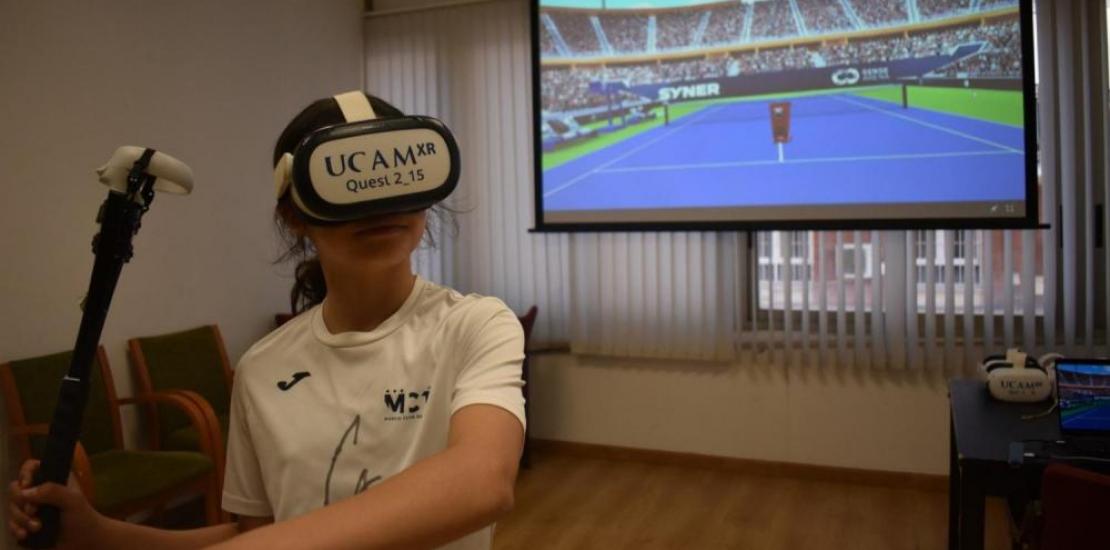Real Murcia Club de Tenis 1919 and UCAM implement a pioneering virtual reality project
Nine competition students from the Murcian club took part in the first phase
The Real Murcia Club de Tenis 1919 and UCAM are developing a groundbreaking virtual reality project which aims to determine whether online tennis lessons can help players of different ages to improve their skills on the court.
The initiative, which completed its first phase this Thursday, involved nine students from the Real Murcia Tennis Club 1919 school, aged between 10 and 12, who compete at regional and national level. After an initial on-court assessment, the tennis players combined real lessons at the club's facilities and virtual reality sessions over the course of six weeks. In the latter, concentration, precision and decision-making exercises were carried out.
After this time, a new test was carried out this Thursday, the results of which will be compared with the data obtained on the first day to determine the success of this new digital tool. Subsequently, this study will be replicated twice more with young people in other age groups, namely 12-14 years and 14-16 years.
This study was made possible thanks to the collaboration of both entities. On behalf of the UCAM, Rafael Melendreras and Rafael Berenguer, researchers of the Degree in Telecommunication Technologies Engineering, Aaron Manzanares and Reyes Ocio, of the Faculty of Sports Sciences and Manuel Pardo, researcher in Health Sciences, took part. The representatives of the Real Murcia Club de Tenis 1919 were the director of the tennis school, Juancho Marín, and the coach Antonio Alcaraz.
The president of the Real Murcia Club de Tenis 1919, Antonio Saura, emphasised the value of this type of initiative ‘which allows us to continue innovating to improve the technique of our youth players, who are the future of this sport’.
For his part, Rafael Melendreras highlighted the relevance of immersive technologies for the development of specific entertainment situations and the improvement of specific skills, especially in young people. ‘In this sense, UCAM is leading various educational and research projects. Given the opportunity to investigate the potential of virtual reality in tennis training, the Real Murcia Club de Tenis 1919, due to its history, was the best setting,’ he concluded.




